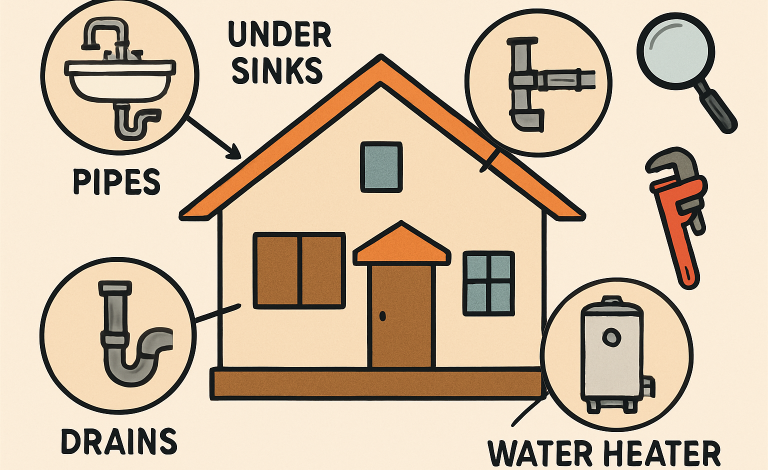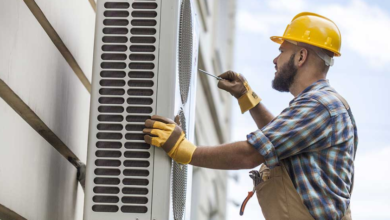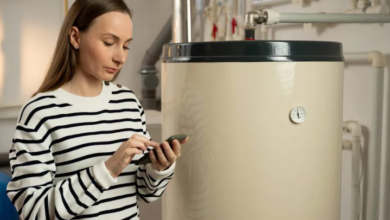Smart Ways to Prevent Plumbing Problems at Home

Key Takeaways
- Regular inspections and maintenance help catch plumbing issues early.
- Smart disposal habits and drain care protect pipes from blockages.
- Insulating and protecting pipes prevents weather-related cracks and bursts.
- Monitoring water pressure and using safe cleaning methods boost plumbing longevity.
Maintaining a healthy plumbing system goes beyond patching up leaks as they appear—it’s about being proactive and informed. Through thoughtful habits and preventive measures, homeowners can significantly reduce the risk of costly plumbing disasters. For those living in Hawaii, plumbing repairs and drain cleaning in Maui – local specialists are available to help address routine issues and keep your system running smoothly. Being prepared and attentive means fewer emergencies and a more comfortable home environment.
This guide offers actionable strategies to prevent common plumbing issues through regular upkeep and mindful usage, saving money, extending your plumbing’s life, and avoiding health hazards. Protect pipes from harsh weather, make smart drain decisions, and recognize early warning signs to avoid costly repairs. Stick to a maintenance schedule, understand your plumbing system, and seek professional help when needed to ensure stress-free water flow year-round. Preventive maintenance involves building habits like monitoring water pressure and understanding plumbing layouts to catch problems early and stay ahead.
Conduct Regular Inspections
Set aside time each season to carefully inspect visible plumbing—look under sinks, behind toilets, and around appliances for leaks, rust, or moisture. Early detection can spare you extensive water damage and help prevent mold growth, keeping your home dry and healthy. Pay attention to changes in water pressure or new water stains, which may signal hidden concerns
See also: Microblading for Thin Eyebrows: The Complete Guide to Fuller, Natural Brows
Practice Proper Disposal Habits
Putting the wrong things down your drains is one of the quickest ways to create blockages or damage pipes. Never pour fats, oils, grease, or coffee grounds down the sink. Even substances that seem harmless can accumulate and restrict water flow. Always use a drain cover or strainer to catch food particles and hair, then dispose of that debris in the trash. Creating these habits protects your plumbing from the inside out.
Protect Pipes from Extreme Temperatures
Pipes located in unheated or exterior walls risk damage when temperatures drop. Insulation is one of the most effective forms of protection: foam pipe sleeves or heat tape provide a barrier that keeps water from freezing and expanding. Don’t forget areas like basements, crawl spaces, or garages—anywhere plumbing could be exposed to freezing air should be covered. As a last defense, leaving faucets dripping slightly overnight during extreme cold can keep water moving and prevent frozen pipes. The U.S. The Department of Energy offers valuable advice on pipe insulation and weatherproofing.
Monitor Water Pressure
High water pressure might feel luxurious in the shower, but it puts serious strain on your pipes, fixtures, and appliances over time. Typical household water pressure should stay between 40 and 60 psi. If you’re concerned, use an inexpensive pressure gauge to check your system. Persistent readings above 80 psi can shorten the life of your plumbing—installing a pressure-reducing valve ensures you protect your investment and prevent small leaks from developing into bigger issues.
Avoid Harsh Chemical Drain Cleaners
Slow or clogged drains are frustrating, but commercial chemical cleaners should only be a last resort. The caustic ingredients inside can corrode pipes, harm septic systems, and expose your family to dangerous fumes. Opt for mechanical solutions like plungers or drain snakes, or use eco-friendly home remedies like baking soda and vinegar. Not only are these methods safer, but they also help preserve your piping over the long term.
Maintain Your Water Heater
A neglected water heater can accumulate mineral sediment, reducing efficiency and increasing energy costs. At least once per year, flush a few gallons of water from the tank to clear out debris—if you have hard water, you might need to flush it more often. Listen for odd noises or rumbling from the tank, which can signal excessive buildup. Routine maintenance extends the water heater’s lifespan and helps you avoid inconvenient breakdowns.
Install Leak Detectors
Leaks often go unnoticed until significant damage has occurred. Modern leak detectors, some of which connect to smartphone apps, can alert you at the first sign of trouble—saving you thousands in repairs. Placing these in high-risk zones like under sinks, behind washers, or near water heaters is a sensible safeguard. Early detection reduces long-term structural damage and keeps your home safe from water-related hazards.
Schedule Professional Inspections
While DIY maintenance is helpful, a professional plumber offers experience and tools to detect hidden issues. An annual inspection can identify problems like leaks, corrosion, or blockages that are hard to see. This small investment prevents major problems later. Adopting smart plumbing habits keeps your home leak-free, extends system life, and promotes a healthier environment. Regular care and prep provide peace of mind and prevent plumbing surprises.
Conclusion: Proactive Plumbing for a Safer Home
Consistent attention and preventive care are key to maintaining a reliable plumbing system. Regular inspections, proper disposal habits, pipe protection, water pressure monitoring, safe drain maintenance, water heater upkeep, and leak detection all work together to prevent costly damage and extend the life of your plumbing. Combining DIY vigilance with annual professional inspections ensures hidden issues are caught early, preserving your home’s safety and efficiency. By embracing these proactive practices, homeowners can enjoy peace of mind, lower repair costs, and a healthier, worry-free living environment.




